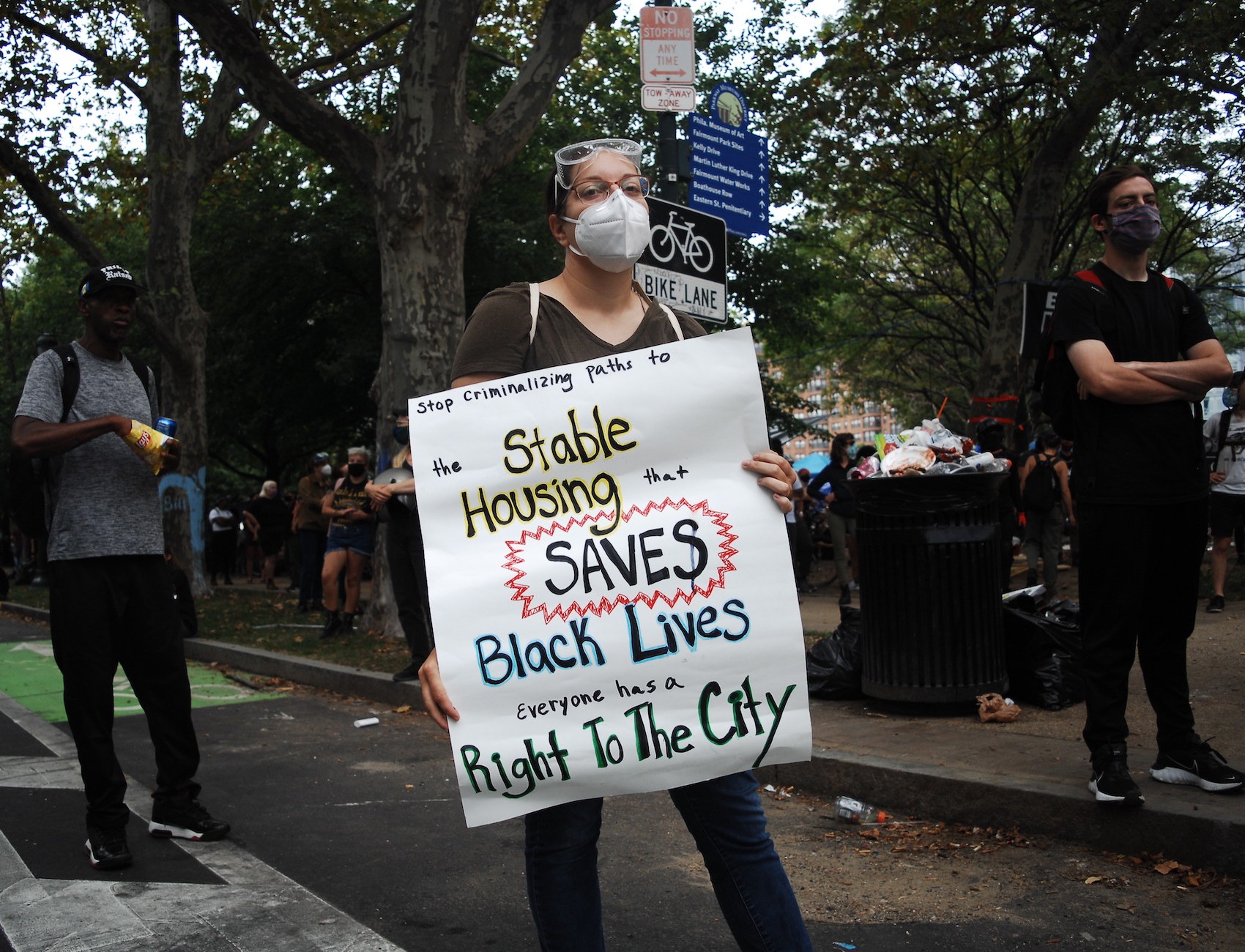Philadelphia Housing Advocates Declare Victory After Monthslong Battle With City
The city will give advocates 50 vacant homes to be used for permanent housing for low-income residents, according to a tentative agreement.

After months of pressure and direct action by protesters, Philadelphia has tentatively agreed to give 50 vacant homes to housing rights advocates, who will use them to provide very low-income residents with housing.
Philadelphia Housing Action, a coalition of local advocacy organizations that fight for housing equity, announced the agreement Saturday with the city and the Philadelphia Housing Authority to transfer the homes to a community land trust set up by the coalition.
In a news release, Occupy PHA organizer Jennifer Bennetch described the tentative deal as a “landmark agreement” and said her group would continue to pressure the city on more low-income housing.
The homes, which will be overseen by local committees, will be for people with extremely low incomes, defined as no more than $25,000 a year per household, the press release states.
As The Appeal reported in August, the Philadelphia Housing Authority owns thousands of units that are left vacant or sold to private developers. Advocates have pushed for the city to instead rehabilitate the units and use them to house low-income or homeless people.
Nearly 6,000 people in the city are considered homeless on any given night and roughly 1,000 are living without shelter. At the same time, there are roughly 50,000 people on the housing authority’s waiting list, which has essentially been closed to new additions since 2013. Many of the housing authority’s properties currently have an average wait time of 13 years.
Saturday’s announcement comes after months of direct actions by advocates and protesters, including the construction of two permanent protest encampments and 15 families taking over vacant homes owned by the housing authority.
The 15 occupied homes are expected to be transferred to the land trust in addition to the 50 included in the agreement, Bennetch told The Appeal. She said all of the homes included in the agreement are properties that were slated to be sold off and not used by the city or housing authority.
The encampments and housing takeovers have persisted for more than 100 days, despite efforts by the city to clear them out. Advocates said the protest encampments will continue to operate as residents are moved to permanent housing and more long-term solutions to the city’s housing crisis are developed.
This could become a sticking point in finalizing the deal. A city spokesperson, who would not confirm that a deal had been reached, told the local NBC affiliate Sunday that any agreement between advocates and the city “will require a date certain by which the protest camps will be resolved.”
Philadelphia is among many cities that need for solutions to the housing crisis. On any given night in the United States, more than half a million people are without a home and roughly 200,000 people are considered unsheltered.
Tens of millions of people have lost their jobs or were laid off because of the COVID-19 pandemic, and advocates worry about looming mass evictions that could exacerbate the problem. The Centers for Disease Control and Prevention issued an eviction moratorium, but landlords throughout the country have still filed tens of thousands of eviction notices.
The moratorium, however, only puts a pause on evictions. Without a long-term solution, renters will be left with significant back due payments and little means to catch up. Advocates have called on Congress to provide significant federal rental assistance to those in need.
In May, the city of Houston opened up $15 million in rent relief, but was overwhelmed with demand and the funds were depleted within two hours.
“I feel like it’s a really big step,” Bennetch told The Appeal about the agreement in Philadelphia. “It’s clearly not enough houses given the volume of vacant PHA houses, but it could be a start of a really big change in the city.”
